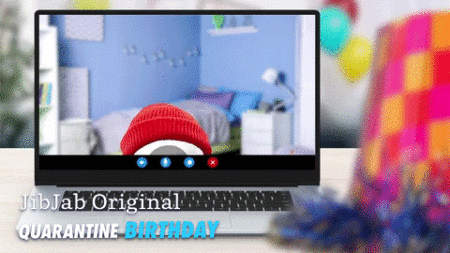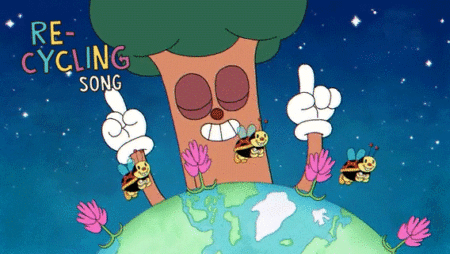Political Satire Is a Third Rail, and JibJab Is Doing Fine Without It
In the not-so-distant past, unabated political humor and satire had a prominent place in American culture. Those in the halls of power understood that it was part and parcel of being a public figure.
Today, only a handful of players like SNL, The Daily Show and select late-night talk show hosts veer into political territory to rile up a Twitter trigger-happy world, but that’s what they’re supposed to do. Brands, with some exceptions, largely stay away from that fraught fray.
For years, ecard platform JibJab traded in political satire, starting in 2000 when the Founding Fathers rap was passed around widely via email and message boards—before YouTube, and years before the advent of social media.
“The founders of the company [brothers Evan and Gregg Spiridellis] were worried that people would have to wait on the 500 kilobyte file to download,” said JibJab CEO Paul Hanges, who joined the company in 2016.
In 2004 (again, before social media), another video featuring George W. Bush and John Kerry broke through. And year after year, sending up politicians past and present without a partisan bent, became part of JibJab’s appeal.
Another staple became the platform’s year in review, published from 2005 to 2014. Ostensibly, the reason that it ended was that the Spiridellis brothers were busy cultivating Emmy-winning kids and the family brand StoryBots (which was picked up by Netflix).
But there was another reason that subscription-only JibJab pulled back from political satire.
“[The company leadership said that it was] too divisive and that we couldn’t poke fun at either side without something materially impacting the business or how people perceive us,” Hanges said. “And this is coming from a company where the two founders did an intro video for the White House Correspondents’ Dinner during the Obama administration.”
Even without one of their main creative muses, JibJab, which was sold to private equity firm Catapult Capital in 2019, has managed to drive a robust ecard business forward through smart partnerships and investing in the creation of new products.
Adweek discussed a range of topics with Hanges, including Facebook and customer acquisition, speeding up work, the future of satire and more.
Why did JibJab participate in the Facebook boycott?
The polarization of America is part of the reason JibJab joined the July Facebook ad boycott. Facebook still makes up around 40% to 45% of our new acquisition channels, from our paid media. I don’t have the same luxury [of continuing the boycott] as some bigger companies that maybe can pivot for brand purposes. I do know that long term, I need Facebook to be able to stay in business and keep the employees on the payroll. But we did want to find a way to contribute somehow because we do want to get back to political satire and be able to poke fun at things.
What have you been testing with some time away from Facebook?
There are so many different attribution models, crossover and cross-pollination. We couldn’t really get a good sense of what channel is really driving the most activity. [During the boycott], we’re going to feel some pain on direct subscribers, which, by the way, was down about 25% versus where we were trending at the end of June. Can we get Pinterest ads up and running? Can we test other channels, see how Facebook ads truly impact brand search or other recall methods that they say will lift up that brand? So we’ll see where all those methods take us. I hope to be able to find more acquisition channels that allow me to diversify.

Has the quarantine changed how JibJab works, like most other creativity-based companies?
Part of our differentiation in the market is the quality of our content and the catalog that we have. We’ve used a variety of different animation styles, and some are very time-consuming. Usually, it takes three months from start to finish. We saw what was happening with stay-at-home orders and knew that people couldn’t go to their local Hallmark, Target or CVS to pick up a paper greeting card, so we just accelerated the process. [The Happy Quarantine Birthday card] took roughly eight business days. It ended up being our top card for the last two-and-a-half months running.

Will JibJab go back to politics?
Can JibJab survive without political satire? Absolutely. We haven’t released that kind of content for years, and business has been good. We tried to release a recycling song around Earth Day, around a year and a half ago now. It was essentially about putting [recyclables] in the blue bin. We got so many negative comments from both sides. People were saying no one should buy plastic, the other side questioned whether or not global warming was real. And that was meant to be neutral. Would we like to be able to poke more fun? Yes, since that’s the core of what we do. But I’m not sure if it will ever happen.
https://www.adweek.com/brand-marketing/political-satire-is-a-third-rail-and-jibjab-is-doing-fine-without-it/